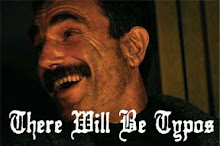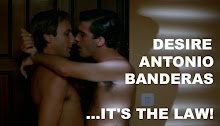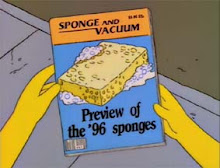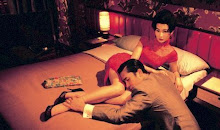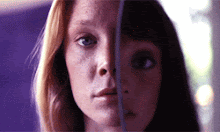
"Evil Kids" movies are their own genre. The likes of The Omen, Village of the Damned, Children of the Corn and It's Alive tap into that tender crux between pristine innocence and the gestation of pure evil. This month saw the release of Orphan, a film which looks to be a variation on The Good Son for the unwanted child set (clarification: unwanted child not named Macaulay Culkin), and it's merely the next film in line to remind us that kids are not to be trusted, from conception to college. The Unborn graciously joins those ranks with a notable recipe for bad taste, and it's memorable for the fact that it keeps the "evil kid" element primarily within the womb.
Actress Brooke Adams lends an air of class to the proceedings as a mother plagued by depression in her bloodline, and a husband whose interest in having children may go deeper than initially perceived. Adams has a substantial history with disturbing material (Shock Waves, The Dead Zone, Invasion of the Body Snatchers, the CBS series Touched by an Angel) and always manages to find the elegance in the mayhem that surrounds her. As Virginia Marshall, she descends from a modest and mild-tempered children's author to a kitten crushing madwoman bent on destroying a master race of homicidal super-babies. Her performance grounds the film's first half, before the film takes a turn for the deliciously worse and no graceful line reading could spare it.
 "Come on, wake up. You lazy cat, come on.
"Come on, wake up. You lazy cat, come on. You're such a sleepy head.
I know... where's your little mouse?
That'll perk you up! You love your little mouse."
Her dilemma is on par with Rosemary Woodhouse as we begin to query if this maternal dread is more a form of pre-partum depression than any sort of legitimate threat growing from within. Also in tune with Rosemary's Baby is Dr. Meyerling (James Karen), a variation on the evil Dr. Sapirstien, who's a bit more involved with Virginia's conception and a bit less reliant on Satan's dirty deed. That parallel of course quickly disintegrates as the film loses all silly notions of substance and foregoes Rosemary's restraint. It's more on par with a recent film like Drag Me to Hell, which similarly takes to kitten slaughter slapstick and is all the better for it. That film pronounces its comic elements from the get go, while The Unborn more or less dissolves into its more manic, twisted side. Much like the decision to abort your monster child, once it's done there's no turning back.
And the film does take on the abortion issue with a vengeance. Quite literally when the aborted fetus returns armed with a knitting needle. But when Virginia ultimately regrets her decision and attempts to rescue the fetus from a back alley dumpster, she's greeted by a homeless gimp on a skateboard -- no explanation whatsoever. Never taking a side on the issues, The Unborn prefers its descent into oddball, gruesome absurdity. It's not so much pro-life as it is pro-inane.
Blink-and-you'll-miss a pre-Friends Lisa Kudrow collecting sperm samples. Apparently at this stage in her otherwise brilliant career, it hadn't been Lisa's day, her week, her month or even her year. There's also a surprise supporting turn from the likes of a pre-Suddenly Susan Kathy Griffin, on the D-List long before she made that concept famous. Kathy's a stellar stand up comic, and even with her penchant for sick humor, I've never heard her speak of playing this role as the teacher of a man-hating, lesbian birthing class who is bludgeoned by her lover with a telephone. It's pretty evident Kathy's calling was for stand up, where the laughs are at the expense of others.

And that's basically what to expect when you're expecting. The Unborn is a film that holds its B-movie origin close to the chest, embraces it warmly, and then gives it a little shake just for good measure. Ill-conceived? Maybe. Raised under questionable guidance? Most definitely. And it grows up to be a big freakshow you're embarrassed to introduce to your friends. Even so... this baby's still on board!

















































